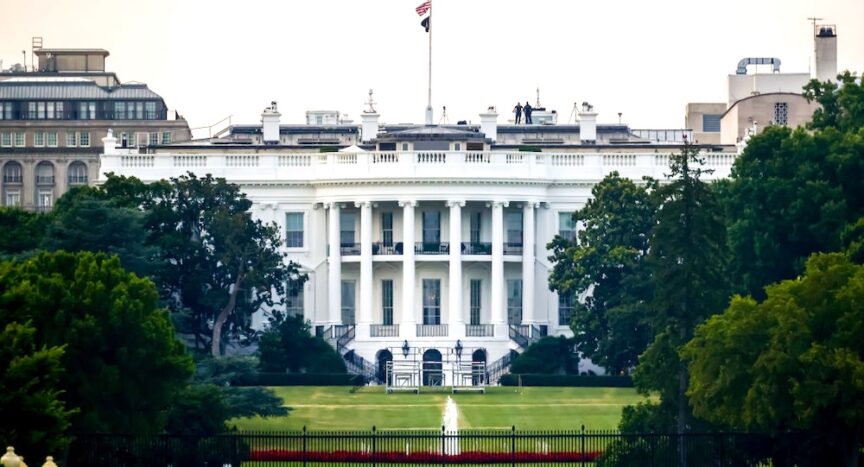Making good on his campaign promises, President Donald Trump signed a slew of executive orders on his first day in office. As a part of his “America First” agenda, the executive orders are also an attempt to undo policies enacted under President Joe Biden’s administration.
Following his inauguration, Trump rescinded 78 of former Biden’s executive actions and signed dozens of orders, memorandums and proclamations of his own. One move the new administration made was the removal of the U.S. Constitution from the White House website which could be a foreshadowing of the next four years.
While some of the executive orders will take time to be implemented, many took effect immediately, such as the pardon of around 1,500 Jan. 6 Insurrection defendants, including Erique Tarrio, the former head of the far-right group the Proud Boys, who was serving a 22-year sentence for seditious conspiracy. At least two people were released from the D.C. jail on Monday (January 20) night.
According to the American Bar Association, executive orders do not need congressional approval and cannot simply be overturned by Congress. If his first day in office is a sample of how his administration will operate, Trump plans to wield presidential power. Here are some executive orders that were signed:
Executive Orders Targeting DEI
In his first move as president, Trump took aim at diversity, equity and inclusion initiatives ordering the programs to end in the next 60 days. On Tuesday (January 21), Trump ordered all federal offices to place DEI employees on paid leave by 5 pm Wednesday (January 22), claiming that “efforts to diversify the federal government were discriminatory.”
Maya Wiley, president and CEO of The Leadership Conference on Civil and Human Rights, said that Trump’s policies are retrogressive.
“Dr. King had a dream, and this is his nightmare: the rollback of the work of our civil and human rights coalition over the past 75 years,” she said in a statement.
Executive Orders Targeting Transgender Americans
Trump established Monday that “it is the policy of the United States to recognize two sexes, male and female,” on official documents. He also rescinded a Biden administration provision that allowed transgender people to serve in the military.
Executive Orders Impacting Federal Workers
Trump is now requiring a full-time return to in-office work for federal employees. He also ordered a hiring freeze on government positions and reinstated his first-term Schedule F executive order, which “could make it easier to fire civil servants deemed disloyal.”
Immigration Executive Orders
Trump declared a national emergency at the U.S.-Mexico border and is sending the military to the region. He also intends to end birthright citizenship by issuing an executive action that would reinterpret the 14th Amendment that grants citizenship to all people born on domestic soil. Additionally, the Trump administration will resume construction of the border wall, temporarily suspend refugee resettlement from certain countries for at least four months and restart the “Remain in Mexico” policy of his first term.
Healthcare Executive Orders
Another order rescinded Biden’s Executive Order 14087, “Lowering Prescription Drug Costs for Americans.” The former order was designed to lower drug prices for Medicare. According to Trump, the program was “unpopular, inflationary, illegal and radical practices.” Other Medicare and Medicaid existing laws and regulations concerning prescription drugs will remain in effect for now.
As a result of the executive orders, 24 Democratic-led states and cities have filed lawsuits against the Trump administration over birthright citizenship. The suits allege that Trump’s executive order signed “violates the 14th Amendment of the Constitution, which gives a constitutional right of citizenship to all children born in the United States.”
“Despite a President’s broad powers to set immigration policy, however, the Citizenship Stripping Order falls far outside the legal bounds of the President’s authority,” states a lawsuit from 18 states, Washington, D.C., and San Francisco.
“The president’s entitled to put forth a policy agenda that he sees fit,” New Jersey Democratic Attorney General Matthew Platkin stated.
“When it comes to birthright citizenship – something that’s been part of the fabric of this nation for centuries, that’s been in the Constitution for 157 years since the Civil War, that’s been upheld by the Supreme Court twice – the president cannot, with a stroke of a pen, rewrite the Constitution and upend the rule of law,” he added.
For a complete list of Trump’s executive orders, visit here.





